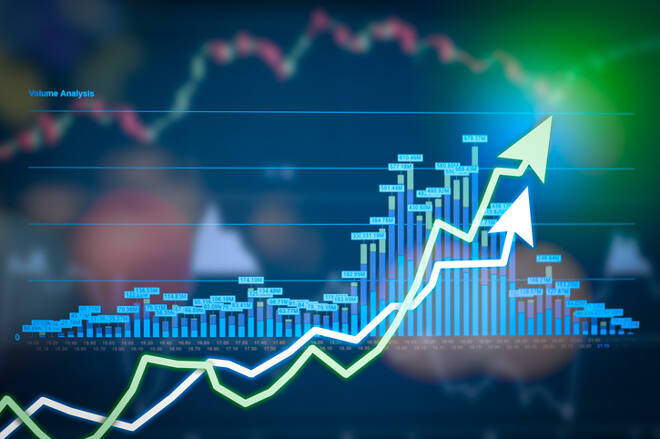Advertisement
Advertisement
US Stocks Gain, Cramer Sees Bullish Sign, Blankfein Supports Tariffs
By:
After the close on Tuesday, CNBC’s Jim Cramer said that the stock market saw a “genuine rally, and that is a bullish sign.” President Trump picked up some support for his aggressive tariffs on China late Tuesday. Former Goldman Sachs CEO Lloyd Blankfein said the Unites States may be feeling the pain of tariffs now, but they will hurt China in the longer term.
Optimism that the U.S. and China would reach a trade deal in a timely manner helped boost the major U.S. stock indexes on Tuesday. On Monday, President Trump offered a projection about how much longer Washington and Beijing could be locked in heated trade negotiations by saying, “We’ll let you know in three or four weeks if it’s successful.”
Trump followed up this comment on Tuesday by tweeting the U.S. is in a “much better position now than any deal we could have made,” noting that “billions of dollars” are returning to the U.S.
CNBC’s Cramer Sees Bullish Sign
After the close on Tuesday, CNBC’s Jim Cramer said that the stock market saw a “genuine rally, and that is a bullish sign.”
“The good news…is that typically on day three of a sell-off, you only get a smattering of brave souls coming in at the end of the session to do some buying. Today wasn’t like that,” the “Mad Money” host said. “Today was much broader than that … Even Boeing saw its stock run, as did Caterpillar, although both were very oversold.”
Cramer further added, “President [Donald] Trump is so determined to get everyone to move their manufacturing out of China that it’s become a footrace that not everyone can win,” he said. “Companies that are too linked to the [People’s Republic of China] will see their stocks get hammered again on the next down day.”
Former Goldman CEO: Trump’s Tariffs Aren’t Bad Idea
President Trump picked up some support for his aggressive tariffs on China late Tuesday. Former Goldman Sachs CEO Lloyd Blankfein said the Unites States may be feeling the pain of tariffs now, but they will hurt China in the longer term.
“Tariffs might be an effective negotiating tool,” Blankfein said in a tweet Tuesday evening East Coast time. “Saying it hurts us misses the point. China relies more on trade and loses more.”
In further added in a tweet, “As in a labor strike where management & workers both get hurt, the process may demonstrate relative strength & resolve & where compromise needs to happen.”
Earlier in the session, Blankfein also tweeted, “As to who ultimately bears the tariffs cost: US buyers may eventually switch their purchases to domestic or non-Chinese companies (and pay a bit more than now). Chinese companies lose their revenues. Not great but part of the process to assert pressure to level the playing field.”
About the Author
James Hyerczykauthor
James Hyerczyk is a U.S. based seasoned technical analyst and educator with over 40 years of experience in market analysis and trading, specializing in chart patterns and price movement. He is the author of two books on technical analysis and has a background in both futures and stock markets.
Advertisement
